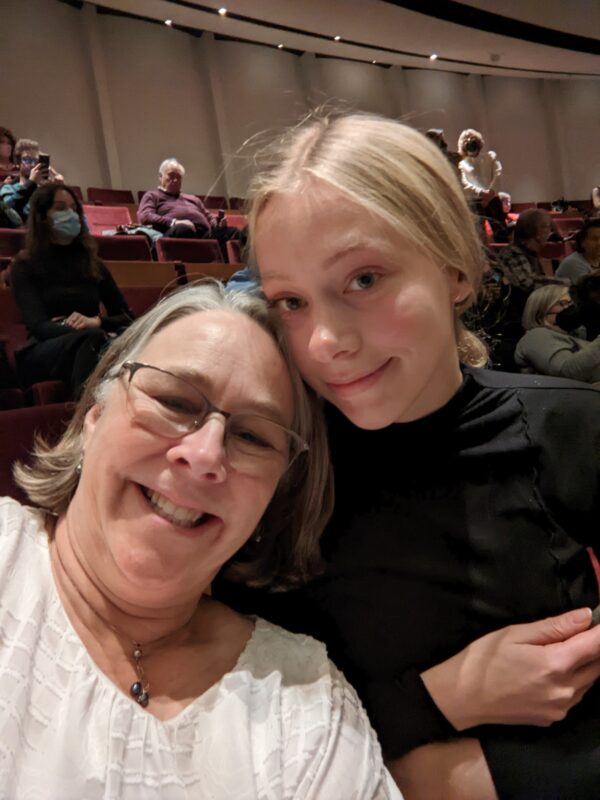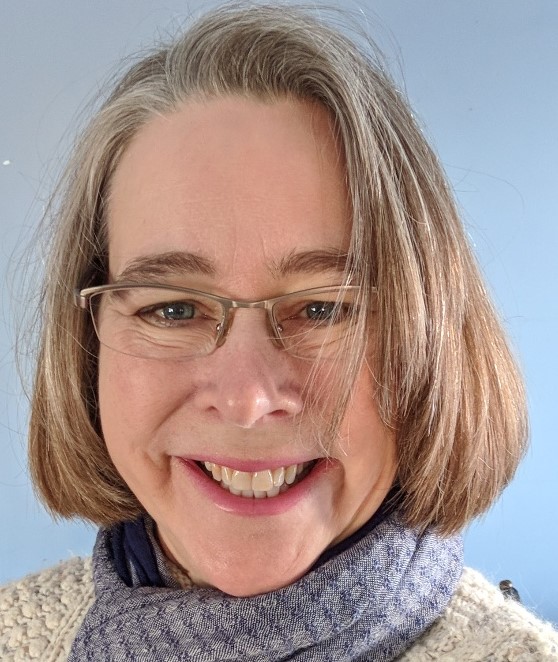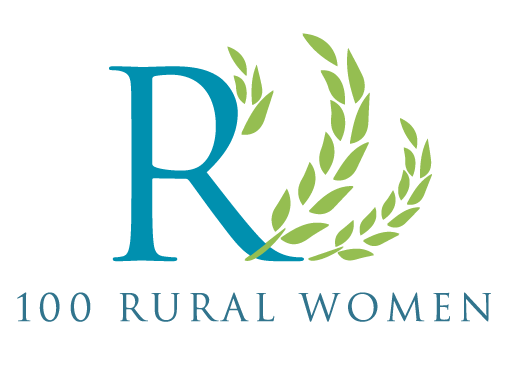“I’m here to show people that there is life outside of the career that you once knew”
Kimberly Gillette is a Career Ownership Coach & entrepreneur based in Moorhead, MN. She is the founder of The Entrepreneur’s Source and guides people through career transitions and building the life they dream of.
We are so fortunate to have Kimberly in our community at 100 Rural Women and to have had the opportunity to speak with her for our Spotlight Profile Series.
Tell us about yourself!
My name is Kimberly Gillette and I have lived in the Red River Valley for 25 years now. It’s hard to believe that it’s been that long. I grew up in the Minneapolis/St Paul area. I moved all over the country growing up and landed in Arizona for a job. After I had my first daughter, we decided to be closer to family. I came across a job in Moorhead, we moved up here, and have called this area our home ever since.

What is your connection to Rural America?
I’ve been in the Red River Valley/rural Minnesota for many years now. I will say, I love being in the outer part of Minnesota. There’s a different pace of life and a different value set. We moved back to this region to raise family here and I think it’s a great place for that. There’s something fun and unique about being in this rural part. And there’s more of a sense of connection to nature and some of that other beauty that Minnesota has.
What is your connection to 100 Rural Women?
I stumbled upon 100 Rural Women by taking a class! I took a class through the local Small Business Development Center and got connected with somebody who is active in 100 Rural Women. I started popping in on their weekly meetings on Thursdays and highly recommend this connection time with others. I can’t wait to get more involved and see how else I can be part of the services and connections that are made through 100 Rural Women. I have also invited other people to join!
Tell us about your career
I started my career in higher education, specifically in international education. So, I worked with international students, international scholars, international faculty, study abroad; the whole gamut in the International Education field. I really thought that was my calling and what I was going to do for my whole career. But a myriad of events led me to leave international education. With that, I decided to take it as an opportunity to reinvent myself and reconsider what I was doing. I forged my way into the second stage of my career. I like to call it my “Career 2.0”
Really, what prompted me to leave was a conversation with some colleagues of mine at the university a few years back. We were talking about what we would do if we left the university. Where would we go? What’s out there? In doing some research, I decided this was where I was going to be. I wanted to help my people find that there is some life outside of academia (if that’s what they choose.) In doing so, I have actually opened my services to anybody who’s in a spot who’s mid-career-ish and looking for that next thing.
I’m here to show people that there is life outside of the career that you once knew at the beginning. We often ask kids: “What do you want to do when you grow up? Who do you want to be when you grow up?” We don’t do that to adults. I give adults a safe place to explore that. It’s fun to have that permission to dream and think about: What else is there? and then help support my clients to find that next step.
I like to say I’m a “Dream Champion.” I help my clients identify their dreams and then I champion their dreams. So, one of the things we do is identify that dream. If they’re thinking of some new avenue, I will always ask them: “What is your dream telling you to do? Do you have enough information? Is that going to help support that?”
What kind of things do you do and what services do you offer as a career ownership coach?
As a career ownership coach, I work with people who are trying to figure out how to either elevate their careers or move into a different industry. We first identify the strengths, weaknesses, and goals of my clients. From there, we look at different avenues. At this point in life, usually, there’s a lot of burnout. We refer to it in our business as “The Battered Career Syndrome.” They’ve been working hard for somebody else and maybe not feeling valued or heard. Or maybe they’re stuck and not finding that next level.
We also talk about lifestyle goals a lot. Maybe it’s work-life balance, wanting to spend more time with family, funds for travel, etc. We identify that and talk about how you can get there.
I love the career ownership coach title because it’s taking ownership of your career in a couple of different ways. First, it’s saying “All right, it’s up to me to define what I want to do and take ownership of my next step.” But then it’s also exploring business ownership and entrepreneurship. Many people hadn’t thought of it. Or maybe had thought of it but hadn’t really pursued it. I’m just curious and help guide my clients through some discovery by asking questions. They open their eyes to a whole new way of thinking about themselves and what’s possible. It’s really satisfying.
Do you mostly work locally?
I am working all over the world actually; I have clients in other countries as well. I am hoping to get more established in the community here with this business. That’s something that I haven’t done yet but I’m hoping 100 Rural Women and some of the other organizations can help.
How did you learn to start your own business and go down that path yourself?
I actually had a career coach as well and was asked: what would it feel like if you were your own boss? Even the thought of feeling free was amazing. So that really prompted me to go learn more. I can’t say enough about the Small Business Administration, the Small Business Development Centers, and the SCORE mentoring program. SCORE got me connected with a mentor that helped me figure out how to narrow down my niche.
I met with a couple of businesses as well. There are some businesses out there that help you walk through each step. If you’re looking at funding, for example, my business is set up as a C-Corp based on how I wanted to fund it. I hired people to help me through that process.
I’ll say, signing that paperwork and getting everything set up was the absolute scariest thing I’ve ever done. I would not change it for the world though. There’s this feeling on the other side of fear that is so worth it. This reminds me, at 211 degrees water is just hot water. At 212 degrees, it turns into steam. So, what happens if you’re at that 211 point and you turn around and say “nu-uh.” What if you just pushed forward that last little bit and you became incredible and became the steam? You could power things and do so much.

Can you tell us about a time that was discouraging and how you overcame it?
I’m going to get personal here–I dealt with some mental illness during some of this stuff. I was very depressed. I was really struggling. After having a career for 26 years and thinking that’s what I would retire from, having that sudden change was really hard. Without realizing it, my whole identity was built into that career. Trying to detangle my identity from my career to reinvent myself was hard. And it took everybody around me. The biggest thing I would say is that it’s okay to ask for help and you need to. I think it’s a huge sign of strength to ask for help. Whether that is from a partner, your children, a family member, a neighbor, a doctor, or a therapist. It is so important to be open and say “hey, I’m struggling. I don’t know where to go from here.” My “Emotional Board of Directors” are the people that help and support me. Really leaning on family and friends helped me.
If you could give a piece of advice to your former self, what would that be?
I would say don’t be afraid. Why did you wait so long?!
And don’t let the naysayers/don’t let others squash your dreams. They may have good intentions. Like your family, they’re coming from a place of love and concern. But they don’t know everything, and they don’t know what you know and so don’t feed into that fear. Go and learn. Just learn. Be curious and learn and get the facts.
How do you lead and create change in your community? and how can your community better support rural women?
That is a fantastic question. I have a mission statement:
“It is through my everyday actions I inspire and guide others to be compassionate, kind, and caring and non-judgmental in their relationships with others while exhibiting integrity in their personal and professional life. Thus, creating an inclusive and welcoming society.”
That is how I’m hoping that I’m creating change in my community. Through that servant leadership and power of example. Hopefully, I’m inspiring others to be who they can be.

Who or what has been a big inspiration to you?
There have been so many people. Where I am and who I am today has really come from my parents. The examples that they shared, the life that they lived/are living, and who they are as people, has definitely been instrumental. My mom is on my “Emotional Board of Directors.” If there’s anything I need, she’s there supporting me and saying I can do it. That has been so incredibly valuable and needed and I can’t say enough about that.
How can people support you?
As a small business owner in this field, the highest compliment somebody can give me is to give me a referral. Ultimately, I would love to build my clientele simply from word of mouth and referrals. If I’m doing right by my clients then they’re going to refer me to others and that’s really where I want to be.
Add me on Linked in! I also have Facebook and Google Business pages. My email—is KGillete@esourcecoach.com



